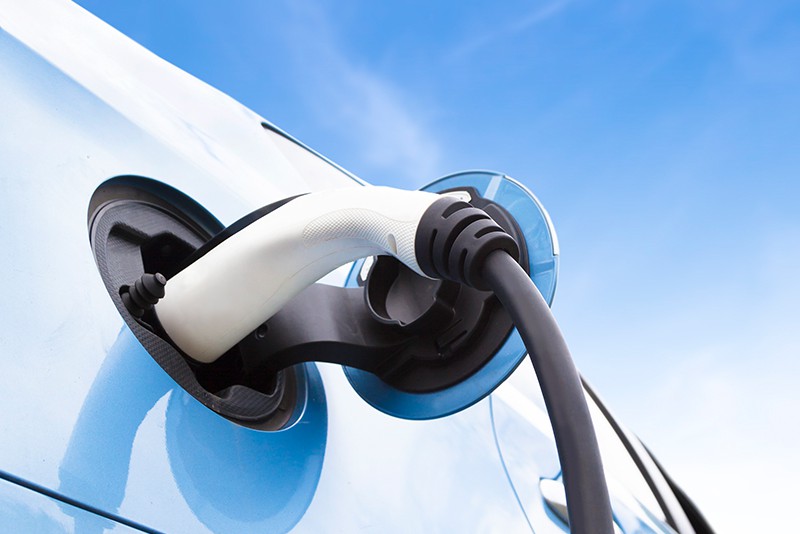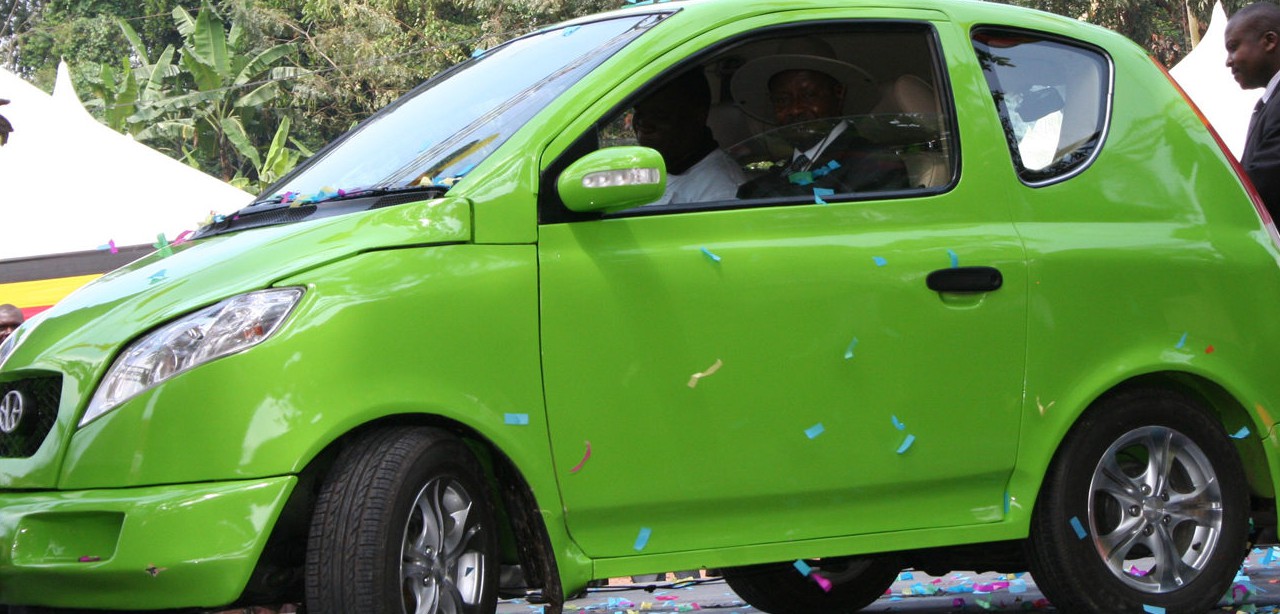
Why Now is the Perfect Time to Switch to Electric.

PEARL EV
Effortless electric car import to Uganda
Whatsapp +256-706-642-849
Whatsapp info@pearlev.com

Electric vehicles (EVs) are becoming increasingly popular worldwide, and Uganda is no exception. As the country transitions towards more sustainable energy solutions, electric cars offer a promising alternative to traditional gasoline and diesel vehicles. However, buying an electric car in Uganda requires careful planning due to unique local conditions and the current state of infrastructure.
Electric cars use an electric motor powered by energy stored in battery packs, rather than internal combustion engines that rely on gasoline or diesel. Key components of an electric car include:
Here are the key factors to consider and questions to ask before making the switch.
1. What Is the Ideal Range for My Needs?
Range anxiety is a significant concern for potential EV buyers. It refers to the fear of running out of battery power before reaching a destination, particularly in areas with limited charging infrastructure.
Consider Your Daily Travel Habits:
Charging Infrastructure Awareness:
Consider Real-World Factors That Affect Range:
Energy-saving features in electric vehicles, such as regenerative braking, play a crucial role in extending driving range and improving efficiency. Regenerative braking allows the car to recover energy that would otherwise be lost during braking by converting it back into electricity to recharge the battery. Additionally, features like eco-driving modes and aerodynamic design enhancements help reduce energy consumption by optimizing power output and minimizing air resistance. These innovations can make a significant difference in range, especially during city driving where frequent stops and starts occur.
2. Where Will I Charge My Electric Vehicle?
The availability of charging options is crucial. Consider the following:
Home Charging:
Public Charging Stations:
Public charging stations exist in Kampala, but relying solely on them isn't ideal. Without home charging, you can consider using DC fast chargers while at work. DC fast chargers can fully charge a vehicle in 20-45 minutes, depending on battery size and chemistry.
As of October 2024, Kampala has four public electric vehicle charging stations located at City Oil Kamwokya, Arena Mall, Amber House on Kampala Road, and Bwaise Taxi Park. The Ministry of Energy has established two of these stations, including the one at Amber House, to support the growth of the electric mobility industry in Uganda. The government, in collaboration with the private sector and other stakeholders, aims to significantly expand the charging infrastructure across the country. By 2040, the plan is to establish at least 3,500 public charging stations, including more than 10,000 fast chargers, ensuring a charging station is available within a 50-kilometer radius throughout the nation.
3. What Is the Cost of Charging an EV in Uganda?
Consider the cost of charging your electric car. Electricity companies charge per kilowatt-hour (kWh) of electricity used. Currently, there are no EV-specific tariffs in Uganda.
The cost to charge an electric car varies depending on the battery size and electricity rates. In Uganda, the cost per kilowatt-hour (kWh) is approximately 1,000 UGX.
For example, charging a 12 kWh battery in a low speed electric car costs 12,000 UGX if the unit price is 1,000 UGX per kWh, providing a range of 180 km. To calculate energy consumption per kilometer, divide the total energy used (12 kWh) by the range (180 km), resulting in approximately 0.067 kWh per km.
If an average Ugandan living and working in Kampala drives 30 km per day, the monthly electricity cost for commuting would be around 56,280 UGX. This calculation is based on a daily 30 km commute over 28 days, with an energy consumption of 0.067 kWh per km.
To estimate charging costs for your EV, use the manufacturer’s rated energy consumption per kilometer. Calculate your monthly charging expenses based on daily commute distances.
While Uganda currently has no special incentives for EV buyers, be on the lookout for any future policies, such as tax reductions or subsidies for EV owners.
4. Should I Buy a New or Used Electric Vehicle?
Deciding whether to buy a new or used electric car depends on several factors, with the initial cost being the most significant. Both new and used electric cars attract a 25% import duty in Uganda, plus shipping, insurance, and registration fees, raising the overall cost by more than 50% from the initial purchase price. New electric cars typically cost between 100M to 500M UGX, while used electric cars range from 50M to 150M UGX.
Buying a new car offers benefits such as a warranty (only if bought from a dealership authorized by the manufacturer) and lower maintenance needs, but used cars can be more budget-friendly if they meet your requirements. Electric cars, like internal combustion vehicles, can last 15-20 years. If you opt for a used electric car, ensure it's less than five years old and in good condition.
Ultimately, the choice between new and used depends on your budget and circumstances. Be aware of all associated costs, including insurance and depreciation.
If your current gasoline car has poor fuel efficiency and you frequently take short trips, switching to an electric vehicle could be a better option. If you have more than one car and access to charging, an electric vehicle can complement your fleet, with the gasoline car reserved for long trips.
Even without home charging option, an electric vehicle might still suit your needs if you primarily take short trips. You can always charge in 45 minutes while at work.
Brand new low-speed electric vehicles (LSEVs) offer a budget-friendly alternative, often priced similarly to or even lower than used high-speed electric vehicles. They can be a practical choice for daily urban commutes, especially in Kampala, where traffic congestion keeps average driving speeds around 40 km/h. LSEVs are well-suited for city driving, providing a cost-effective and efficient solution for navigating the traffic on our streets.
5. How Does Maintenance Differ from Traditional Vehicles?
Lower Maintenance Costs:
Tire and Brake Maintenance:
Battery Maintenance:
Limited Repair Options:
EV manufacturers typically offer an 8-10 year battery warranty, but this warranty is only valid in countries with authorized dealerships. However, this doesn't mean that the battery will fail after 10 years; rather, it indicates that some degree of degradation is likely to begin by that time.
It's essential for electric vehicle owners to learn some basic self-maintenance practices and troubleshooting tips, such as monitoring battery health and recognizing early signs of degradation. Understanding how to check battery performance, identify unusual noises, and troubleshoot common issues can help prevent costly repairs and ensure the vehicle runs efficiently. As the electric mobility industry grows, companies like Kiira Motors Corporation are playing a vital role by training young people in EV repair skills. At Pearl EV, we are also committed to this effort by training 10 EV repair specialists on our staff, equipping them with the expertise needed to support electric vehicle owners.
Conclusion: Make an Informed Choice
Owning an electric car offers benefits, but gasoline vehicles also have their advantages. If you own a gasoline car and occasionally take long trips, consider keeping it and adding an electric vehicle for daily commuting or hybrid vehicles. If your trips are mostly short and within city traffic, switching to an electric car may be worthwhile.
If your budget allows, buying a new electric car is an option. However, if you're on a budget or want to wait for newer technology, consider a used EV as your first purchase. Starting with a used electric car helps you learn about ownership while enjoying the cost savings associated with electric driving. This also allows you to experience electric vehicle ownership at a lower cost and gain insights for future purchases.
The EV market is rapidly evolving, with new models offering longer ranges, faster charging, and better features. Buying a used EV can be a way to "test the waters" before investing in a more advanced model in the future. Alternatively, consider low-speed electric vehicles, which are now available in Uganda.
Transitioning to an electric car in Uganda can offer benefits like lower fuel costs, reduced maintenance, and a positive environmental impact. However, the decision should be based on a thorough evaluation of your travel needs, charging options, budget, and long-term plans. Whether you opt for a new or used electric car, doing the necessary research will help you make a sound investment.
Our knowledgeable team is committed to helping you find and import an electric car that fits your needs and budget. Feel free to reach out to us with any inquiries about EVs, and don’t forget to subscribe to our YouTube channel to stay updated on local market trends and upcoming EV models that may soon be available in Uganda.